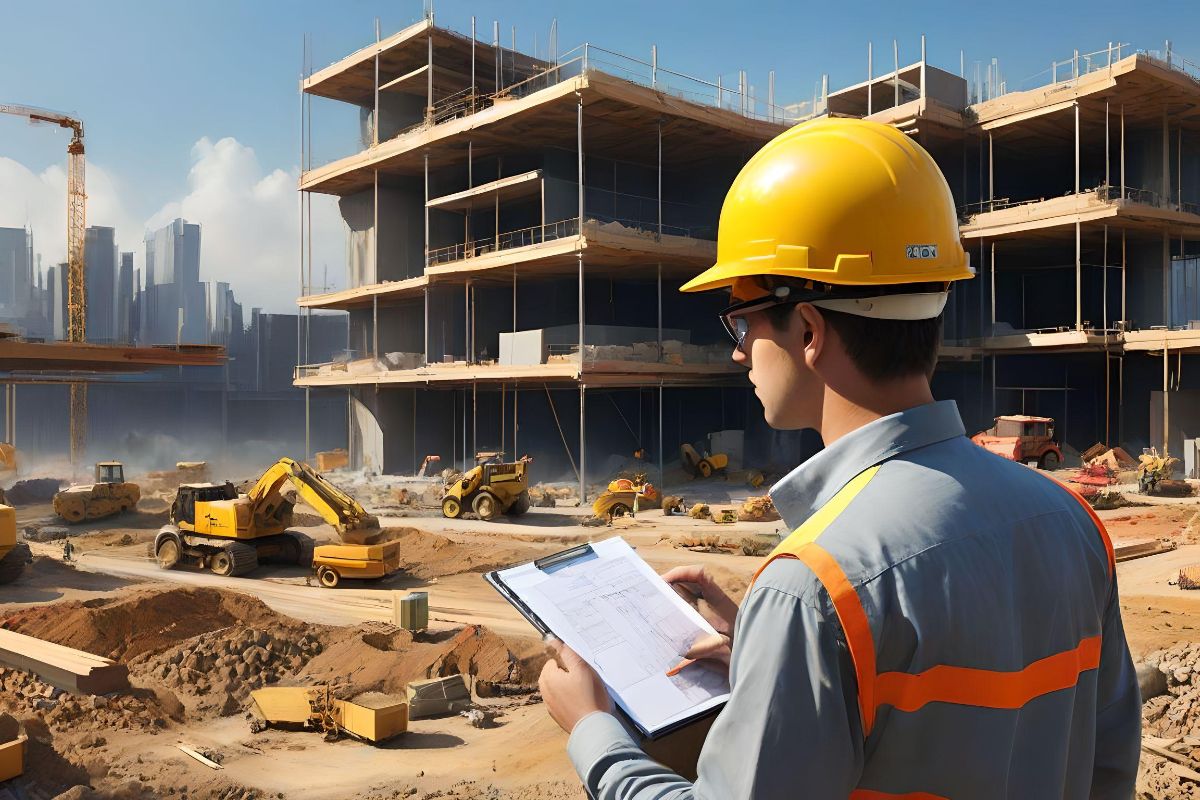
Construction projects are complicated tasks that need careful planning, organization, and management to be completed successfully. A skilled and experienced manager who has a diploma in construction and management watches every part of a project from the beginning to the end, making sure it runs smoothly.
In this article, we will delve into the critical importance of proficient project managers in construction and explore the multifaceted roles they play in guaranteeing project triumph.
Planning and Coordination
It’s essential to plan any building project before starting. In this plan, everyone sets goals and objectives. Good managers collaborate with stakeholders to set these goals so everyone is on the same page.
Establishing Clear Objectives
Before breaking ground on any construction project, it is imperative to establish clear and concise objectives. These objectives serve as guiding principles throughout the project’s lifecycle, ensuring that all stakeholders are aligned in their vision.
Good managers collaborate closely with stakeholders to define these objectives, setting achievable goals and milestones that drive the project forward.
Resource Allocation
Another important part of good project management is allocating resources well. Managers must judiciously distribute human, financial, and material resources to optimize project efficiency while adhering to budgetary constraints.
By carefully balancing resource allocation with project requirements, managers can maximize productivity and minimize waste, ensuring that resources are utilized to their fullest potential.
Budgeting and Cost Control
A good financial plan is essential before any building project begins. This strategy estimates costs to keep the project within budget. Effective managers examine project needs and costs to produce accurate budgets that include all costs.
Developing Realistic Budgets
A realistic budget is very important for any building job to be successful. When making budgets, good managers carefully look at the project’s needs and costs to make sure they cover all the costs that need to be paid.
To make sure that the budget correctly reflects the project’s scale and complexity, they think about things like the cost of labor, materials, equipment rentals, permits, and unplanned events.
Cost Monitoring and Control
Once the budget is established, it is essential to monitor expenditures closely throughout the project lifecycle. Good managers implement robust cost monitoring and control mechanisms to track spending and identify potential cost overruns.
By regularly reviewing financial reports and implementing measures to control costs, managers can mitigate financial risks and keep the project on track within budgetary constraints.
Risk Management
Construction projects are inherently risky endeavors, fraught with various hazards and uncertainties that can impact project outcomes. Good managers are adept at identifying potential risks and vulnerabilities early in the project planning phase.
They conduct thorough risk assessments, taking into account factors such as safety hazards, environmental concerns, regulatory compliance issues, and supply chain disruptions to mitigate potential risks proactively.
Mitigation Strategies
In addition to identifying risks, managers must also develop comprehensive mitigation strategies to minimize their impact on the project. This may involve implementing safety protocols, securing insurance coverage, diversifying supply chains, and developing contingency plans to address unforeseen challenges.
By proactively addressing potential risks and vulnerabilities, managers can safeguard the project against costly delays, disruptions, and legal liabilities.
Time Management
In construction, time is money, making effective time management essential for project success. Managers know how to make plans, keep track of work, and make sure that due dates are met.
Scheduling
Effective time management is crucial for keeping construction projects on schedule and meeting deadlines. Good managers create detailed project schedules and timelines, outlining critical milestones and deliverables to ensure that all tasks are completed promptly.
They take into account factors such as weather conditions, resource availability, and logistical constraints when developing schedules to minimize delays and optimize project efficiency.
Progress Tracking
In addition to creating schedules, managers must also track project progress closely throughout the construction process. Fencers, for example, use various tools and techniques, such as project management software, daily progress reports, and site inspections, to monitor progress and identify potential bottlenecks or delays, with some teams relying on specialized tools like Jobnimbus fencing software to streamline their workflows and enhance efficiency.
By staying vigilant and proactive in their approach, managers can address issues promptly and keep the project on track for timely completion.
Quality Assurance
Maintaining high-quality standards is paramount in construction projects to ensure the durability, safety, and longevity of the finished structure. Good managers establish rigorous quality standards and benchmarks that must be met throughout the project lifecycle.
To guarantee workmanship fulfills industry standards and regulatory criteria, they work closely with contractors, subcontractors, and suppliers.
Continuous Improvement
In addition to establishing quality standards, managers must also implement continuous improvement initiatives to enhance project quality and performance. This may involve conducting regular quality inspections, soliciting feedback from stakeholders, and implementing corrective actions to address deficiencies or shortcomings.
Managers may assure project success and stakeholder satisfaction by promoting continual improvement and excellence.
Communication and Stakeholder Management
Clear and open communication is essential for the success of any construction project.
Effective Communication
Good managers facilitate communication between stakeholders, ensuring that all parties are informed, engaged, and aligned with their objectives.
To update stakeholders on project progress, milestones, and potential issues, they use meetings, emails, and project status reports.
Conflict Resolution
Despite meticulous planning and coordination, conflicts and disputes may inevitably arise during a construction project. Good managers are skilled at resolving conflicts and addressing stakeholder concerns in a timely and effective manner.
They employ conflict resolution techniques such as mediation, negotiation, and compromise to reach mutually acceptable resolutions that preserve positive relationships and minimize disruptions to the project.
Leadership and Team Management
Collaboration and responsibility are key to leading diverse construction teams to project goals. Managers who recognize, develop, and reward team members will inspire them.
Team Building
Building and managing effective project teams is essential for project success. Good managers cultivate a positive work environment that fosters collaboration, trust, and accountability among team members.
They assemble diverse teams with complementary skills and expertise, empowering team members to leverage their strengths and contribute to the project’s success.
Motivation
Keeping team members motivated and engaged is key to maintaining high levels of productivity and morale throughout the project lifecycle. Good managers recognize and reward team members for their contributions, whether through verbal praise, monetary incentives, or opportunities for professional development.
By fostering a culture of recognition and appreciation, managers can inspire team members to perform at their best and achieve outstanding results.
Building Tomorrow, One Project at a Time
Good managers are indispensable for the success of construction projects. By leveraging their expertise, leadership skills, and communication abilities, managers can navigate the complexities of construction projects and ensure that they are completed safely, on time, and within budget.









